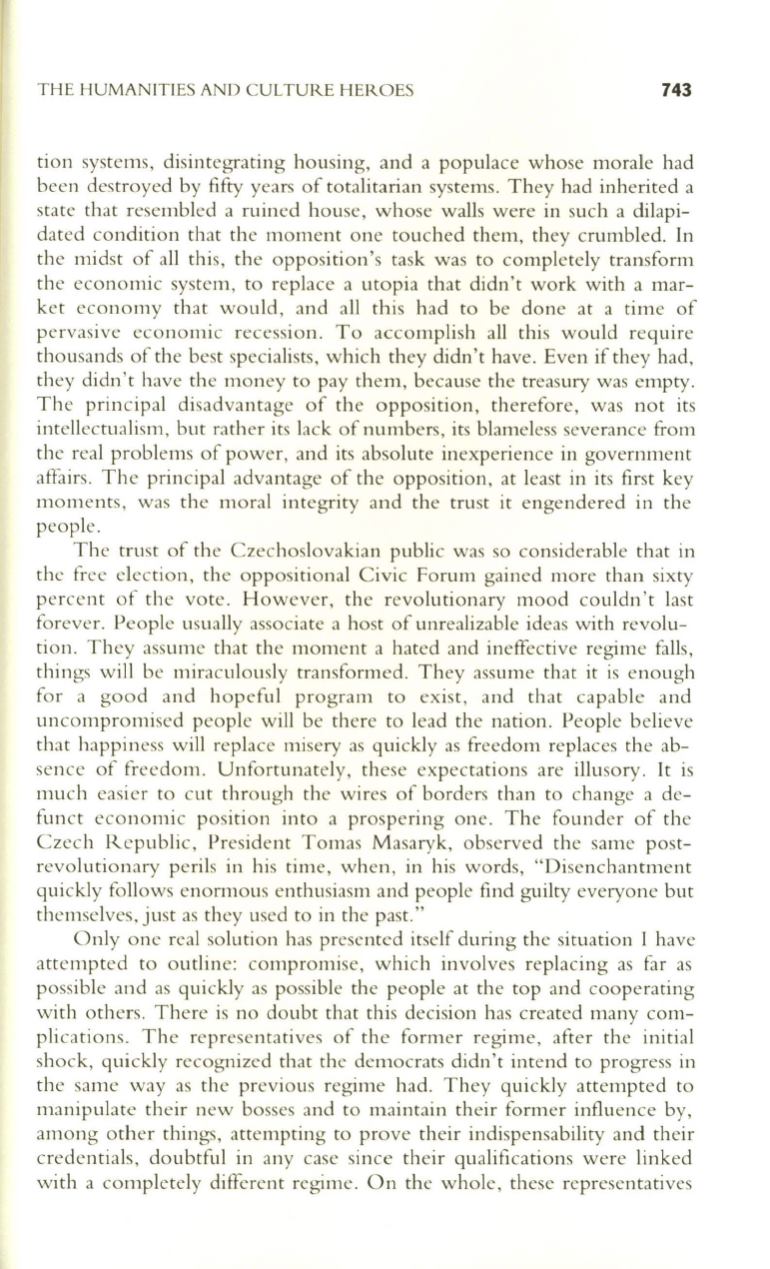
THE HUMANITIES AND CULTURE HEROES
743
tion systems, disintegrating housing, and a populace whose morale had
been destroyed by fifty years of totalitarian systems. They had inherited a
state that resembled a ruined house, whose walls were in such a dilapi–
dated condition that the moment one touched them, they crumbled. In
the midst of all this, the opposition's task was to completely transform
the economic system,
to
replace a utopia that didn't work with a mar–
ket economy that would, and all this had to be done at a time of
pervasive economic recession. To accomplish all this would require
thousands of the best specialists, which they didn't have. Even if they had,
they didn't have the money to pay them, because the treasury was empty.
The principal disadvantage of the opposition, therefore, was not its
intellectualism, but rather its lack of numbers, its blameless severance from
the real problems of power, and its absolute inexperience in government
affairs. The principal advantage of the opposition, at least in its first key
moments, was the moral integrity and the trust it engendered in the
people.
The trust of the Czechoslovakian public was so considerable that in
the free election, the oppositional Civic Forum gained more than sixty
percent of the vote. However, the revolutionary mood couldn't last
forever. People usually associate a host of unrealizable ideas with revolu–
tion. They assume that the moment a hated and ineffective regime falls,
things will be miraculously transformed. They assume that it is enough
for a good and hopeful program
to
exist, and that capable and
uncompromised people will be there to lead the nation. People believe
that happi ness will replace misery as quickly as freedom replaces the ab–
sence of freedom. Unfortunately, these expectations are illusory. It is
much easier to cut through the wires of borders than to change a de–
funct economic position into a prospering one. The founder of the
Czech Republic, President Tomas Masaryk, observed the same post–
revolutionary perils in his time, when, in his words, "Disenchantment
quickly follows enormous enthusiasm and people find guilty everyone but
themselves, just as they used to in the past."
Only one real solution has presented itself during the situation I have
attempted to outline: compromise, which involves replacing as far as
possible and as quickly as possible the people at the top and cooperating
with others. There is no doubt that this decision has created many com–
plications. The representatives of the former regime, after the initial
shock, quickly recognized that the democrats didn't intend to progress in
the same way as the previous regime had. They quickly attempted to
manipulate their new bosses and to maintain their former influence by,
among other things, attempting to prove their indispensability and their
credentials, doubtful in any case since their qualifications were linked
with a completely different regime. On the whole, these representatives


